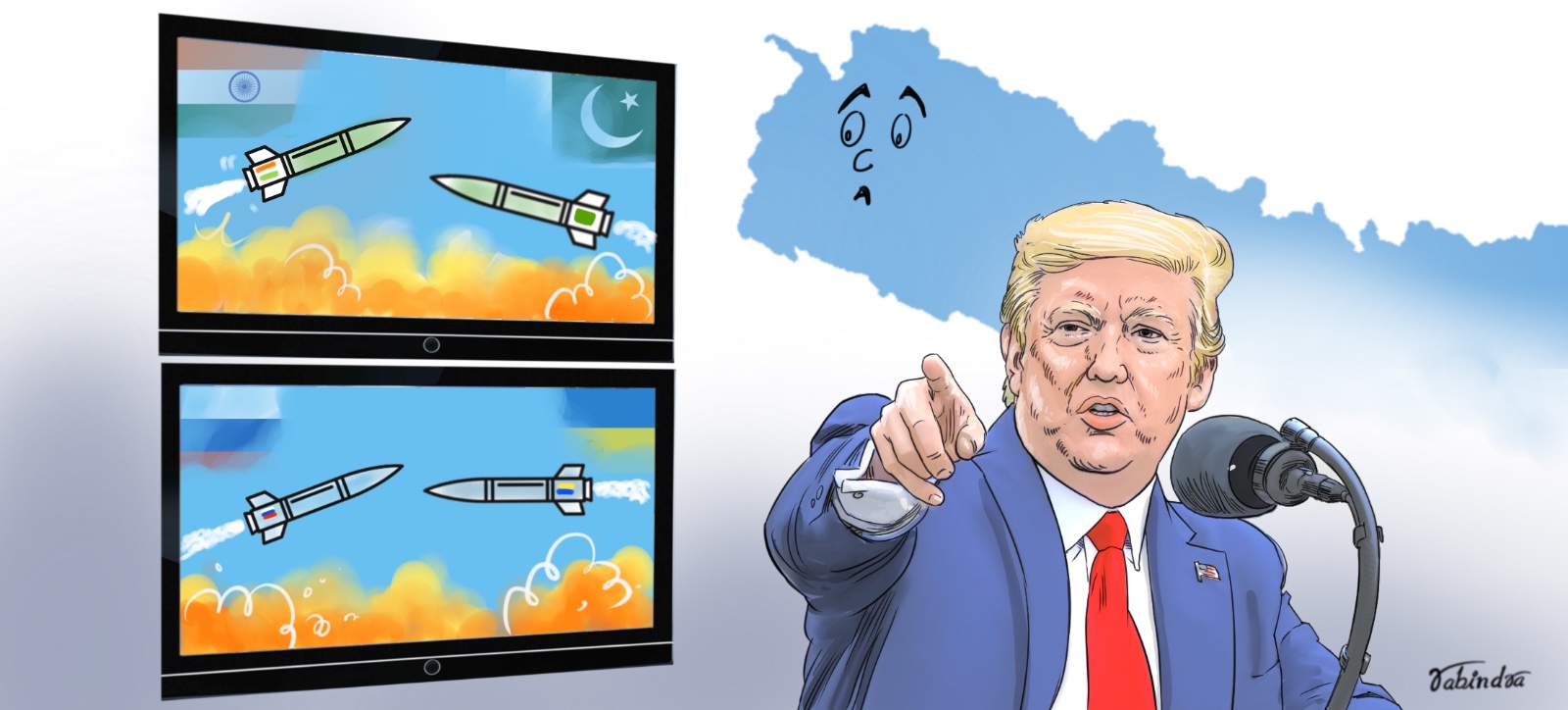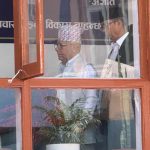The tragic Pahalgam incident, quite possibly orchestrated by Pakistan-based terror outfits, has once again jolted South Asia — and indeed the world — into facing the cataclysmic dangers of unresolved regional animosities. With two nuclear-armed neighbors staring each other down, and jingoistic, media-driven nationalism dominating public discourse on both sides, South Asia is teetering on the edge. For a country like Nepal, this is not a distant crisis to passively observe. It is a stark reminder of how quickly geopolitical tensions can put our people and economic interests in harm’s way.
Since taking office in 2014, Indian Prime Minister Narendra Modi has undertaken a whirlwind of diplomatic visits around the globe — including to nations not traditionally aligned with India — in a bid to secure categorical support for India’s international positions. Yet, in the aftermath of the Pahalgam attack, India did not receive the unequivocal backing it had anticipated. To mend this gap, New Delhi dispatched a multi-party delegation of Members of Parliament — including eloquent opposition MP Shashi Tharoor — to make India’s case across the world. All of this, much like the Trump-era demands for clear alignment, underscores how even aspiring powers like India now expect their allies and neighbors to take a firm and visible stance in foreign policy.
Increasingly, neutrality is being viewed as evasion or indecision by the great powers. The post–Cold War diplomatic comfort zone of trying to please everyone — or at least offend none — is shrinking fast. India’s search for unequivocal endorsements, particularly after acts of cross-border terrorism, is emblematic of a world where “strategic silence” is no longer acceptable. Nepal, with its long reliance on non-alignment and neutrality, must now confront this emerging reality.
We Do Not Have Cards
In today’s interconnected and deeply asymmetrical global order, sovereignty is not simply the right to act freely — it is the responsibility to act wisely. Ukraine offers a sobering cautionary tale. Exercising its sovereign choice to lean westward and alter the power dynamics in Eastern Europe, Ukraine underestimated the blowback and overestimated international resolve. Despite military aid and symbolic solidarity, Ukraine’s calls for full-fledged support are increasingly met with fatigue and hesitation. US President Donald Trump made this painfully clear when, during a conversation in the Oval Office, he bluntly reminded President Zelensky, “You do not have cards.” The message was unmistakable: in today’s world, moral clarity is insufficient — real leverage is what matters.
Nepal finds itself in a similarly precarious position — sandwiched between India’s proclaimed Himalayan frontier and China’s quiet acceptance of Indian primacy over Nepal’s security sphere. Our geography cannot be undone, but our posture can be recalibrated. Like Ukraine, if we bluff sovereignty without any strategic leverage, we may find ourselves isolated in moments that demand urgent solidarity. The lesson is clear: in the international arena, intent must be matched with preparedness, and principles with pragmatism.
Beyond Kautilya and Prithvi
Our foreign policy mindset must move beyond the age-old Kautilyan doctrine that views immediate neighbors as natural threats. This worldview shaped the Dibyopadesh of Prithvi Narayan Shah, who advocated befriending distant imperial China over neighboring Tibet, and aligning with the British Empire rather than with regional powers like Awadh and Bengal. The Ranas elevated this into a near-ideology, and it served them well — granting them a century-long reign. Their decision to side with the British during the Indian Mutiny of 1857 was arguably Nepal’s most consequential foreign policy move, one that altered the course of South Asian history. The same mindset continued into King Mahendra’s reign and is still discernible in today’s democratic leadership. It is time to recognize that while this approach may have served a feudal or imperial Nepal, it is misaligned with the needs and aspirations of a modern democratic republic.
Today, we live in an era of global trade networks, regional economic blocs, and transnational challenges. Suspicion-based diplomacy no longer ensures sovereignty — it risks irrelevance. Rather than seeing neighbors as inevitable adversaries, we should pursue strategic partnerships grounded in mutual interest. Nepal must embrace cooperative diplomacy — not because we are weak, but because we are wise. Winning today is about integration, not insulation.
Redefining Neutrality in a New Era
The principal architects of the Non-Aligned Movement — India, Egypt, Indonesia, Ghana — have long moved beyond rigid neutrality. India partners with the West through platforms like the QUAD; Egypt aligns closely with Gulf states; Indonesia practices issue-based diplomacy within ASEAN. Terms like “non-alignment” have evolved into nuanced strategies such as “strategic autonomy,” “multi-alignment,” and “essential arbitrage.” These are not contradictions — they are adaptations to the complex and shifting contours of modern geopolitics.
Nepal must also refine its own approach. Neutrality should not be a passive retreat from global complexities but a proactive framework for principled flexibility. We must align based on issues, not ideology. Strategic ambiguity holds value only when it is underpinned by national clarity, capacity, and diplomatic engagement. Our goal should be informed independence — not inertia.
Moreover, let us be realistic while picking examples to justify our current position. Switzerland’s neutrality is a historical outlier, born from a unique European power balance and fortified by centuries of institutional credibility. Singapore’s strategic quietude stems not from passivity, but from a dynamic economy and world-class human capital — resources that allow it to maneuver without fear. These models are not readily replicable for countries with modest resources and fluid political realities. For Nepal, neutrality is not a default privilege — it must be sustained through intelligent, consistent, and bold diplomacy.
The Pahalgam incident, therefore, is not just another tragic episode in South Asian security. It is a signal flare warning Nepal and others that the age of lazy neutrality is fading. We must reimagine our foreign policy — not by abandoning our sovereign rights, but by using them wisely. Sovereignty gives us the freedom to move and choose. Declared neutrality, when ossified, shuts down that choice. In a world demanding clarity, our silence might no longer be seen as wisdom — but as abdication.
Nepali version of the story
(The author is the Spokesperson of the People First Movement. He can be reached at [email protected])











